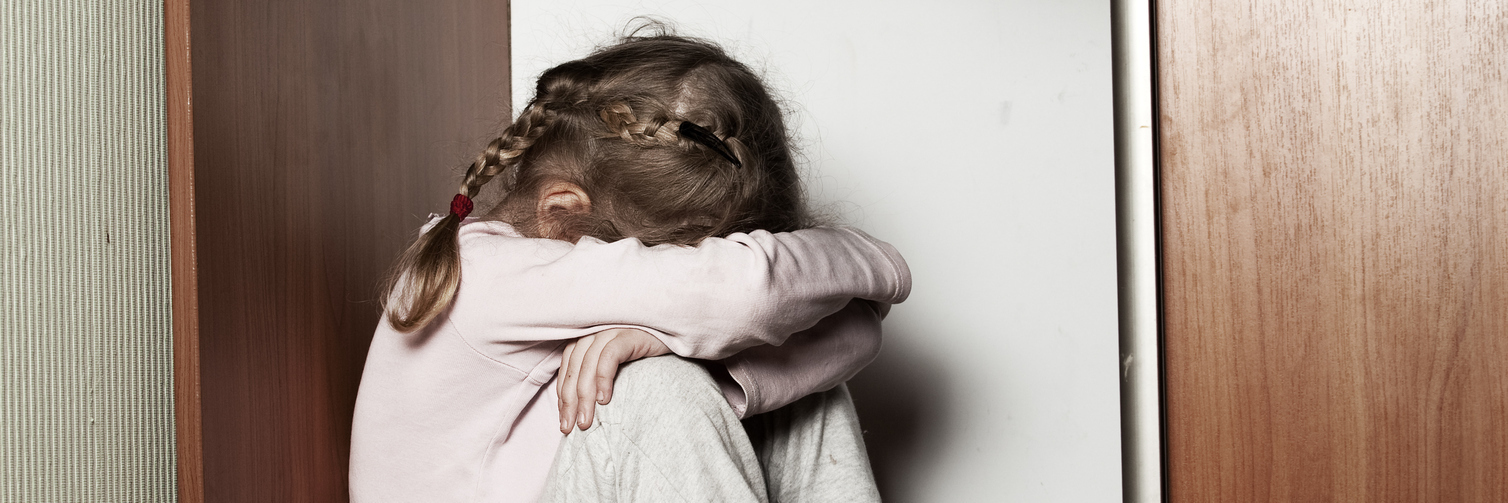I Wish I'd Known I Wasn't the Only Kid Counting Fence Posts to Avoid the Apocalypse
Editor’s note: This post discusses suicidal thoughts as well as descriptions of the author’s intrusive thoughts. If you need support right now, call the National Suicide Prevention Lifeline at 1-800-273-8255, or text “HOME” to 741-741.
When I was 9, I told my mom I was scared I was going to kill myself. Being a parent now, I can only imagine the terror that must have unleashed in her, but she kept a good poker face.
“You’re saying you want to kill yourself?”
“No, I’m saying I’m scared that I’ll do it.”
“But why would you be scared of something you know you don’t want to do?”
The answer to that question was complicated. I was scared I would kill myself because the concept of suicide had popped into my head. Who knows why? Possibly I had seen something in a movie or, given my age, recently learned what the word meant. But instead of dismissing the thought as meaningless, my brain latched onto it with a vice grip. If I was thinking about suicide, 9-year-old me reasoned, then I must secretly want to kill myself. That thought horrified me and set off even more thoughts and mental images. My heart started beating in my chest, my breath turning to a wheeze as my throat tightened with fear. If I couldn’t control the thoughts in my head, how could I be certain I could control my actions?
That was the first time I remember having a panic attack from what I now know was obsessive-compulsive disorder. My parents had never heard of OCD, so they spent the next four years referring to my litany of bizarre behaviors as my “worrying” problem. By the time I was in middle school, I had acquired an impressive list of rituals meant to create a facade of control over the irrational fear that gripped me at random moments, dozens of times a day. I had to touch our doorknob a certain number of times or else a murderer would sneak into the house and kill us all and it would be my fault. I had to check the green light on our carbon monoxide detector every 10 minutes or we would be poisoned and die and it would be my fault. I had to make sure the last words my parents and I said to each other each night were “I love you” or else we all might die in our sleep and they wouldn’t know for sure that I loved them and it would be my fault.
(Yes, most of my fears centered around death: specifically, my loved ones dying terrible ones caused by my inattention or failure. I was, shall we say, an intense middle schooler.)
In addition to my rituals, there were also things I avoided because of the intrusive thoughts of OCD. I hated handling kitchen knives because the moment I touched them I would have images of stabbing myself in the gut or slicing my arms open. I wouldn’t stand near the edges of stairwells or bridges because I saw myself leaping to my death in a thousand creative ways. I didn’t like being in stores with a lot of breakables for fear that I would dash every last glass Pier One candle holder against the wall.
Of course, I didn’t want to actually do any of these things; in fact, I explicitly did not want to do them, ever. My OCD brain was dredging up my deepest terrors and then convincing me I would somehow bring them all to fruition in my own life. I fear, therefore I am.
All of this made me feel really, really “crazy” for a long time. I mean, I know every 12-year-old probably feels crazy, but I’m willing to bet most of them don’t spend their weekends tapping the locks on their bedroom windows like a frantic telegraph operator or avoiding the family dog for fear of kicking it in the face. Needless to say, I didn’t attend many sleepovers during this time. I also didn’t tell many people in my life about my “worrying problem” because (and I am still slightly fretting about this even now as a functional 30-year-old adult writing this), it sounds really ridiculous.
I’m glad anxiety disorders seem to getting a moment in the cultural spotlight, thanks to things like Maria Bamford’s new show “Lady Dynamite” and listicles like this I kind of appreciate and kind of hate at the same time. Maybe if I had come across things like that when I was 12, I would have realized that statistically speaking, there was probably at least one other kid at my school counting fence posts to avoid the apocalypse, and even that tiny thought would have made me feel less alone.
If you or someone you know needs help, visit our suicide prevention resources page.
If you need support right now, call the National Suicide Prevention Lifeline at 1-800-273-8255, the Trevor Project at 1-866-488-7386 or text “HOME” to 741-741. Head here for a list of crisis centers around the world.
Follow this journey on The Neutral Ground.
We want to hear your story. Become a Mighty contributor here.
Thinkstock photo by TatyanaGl

